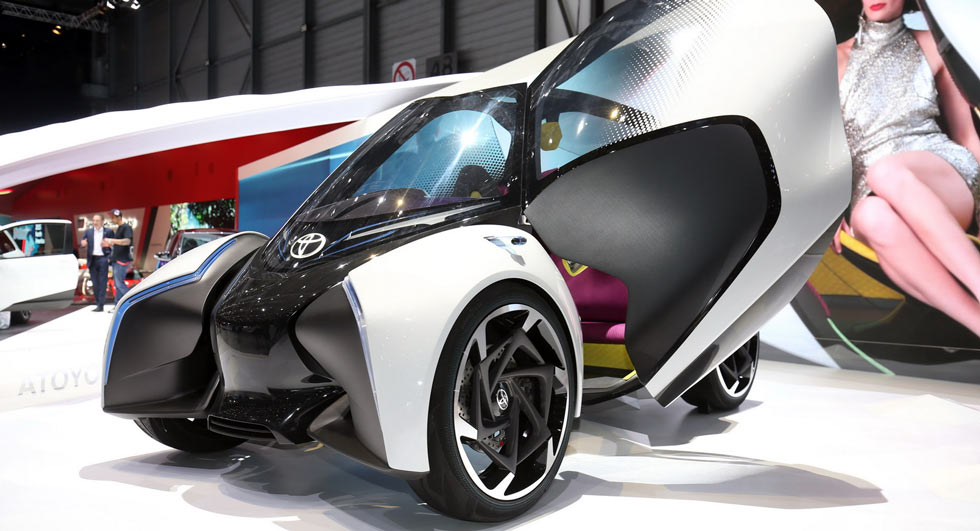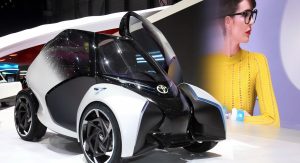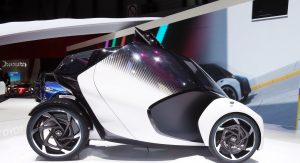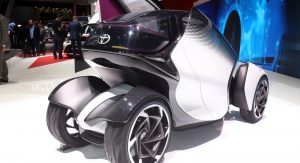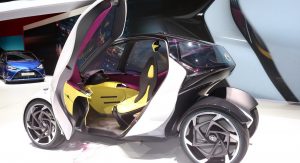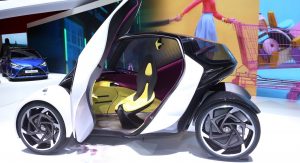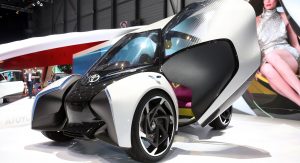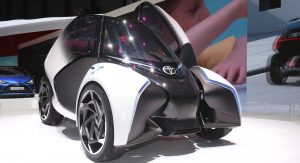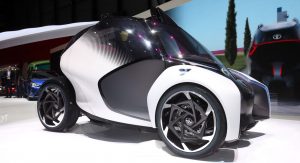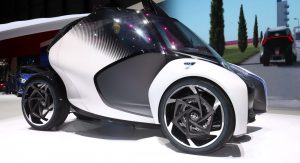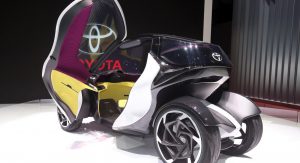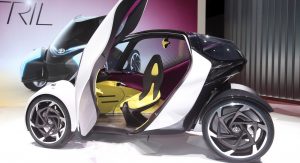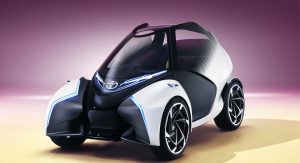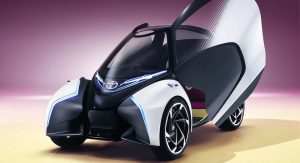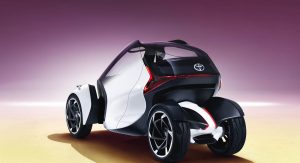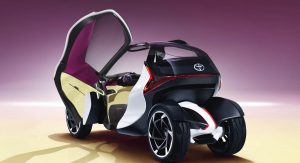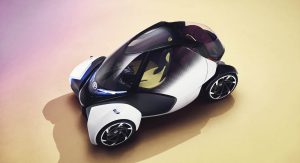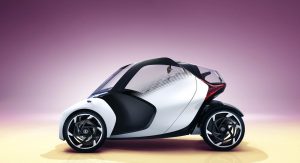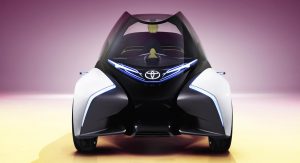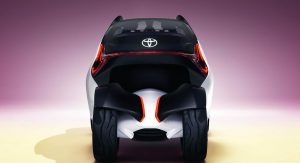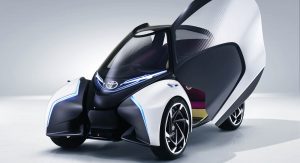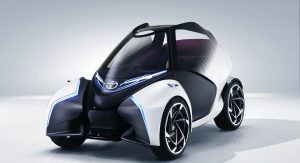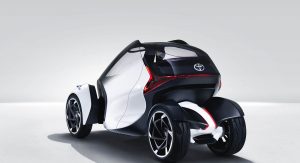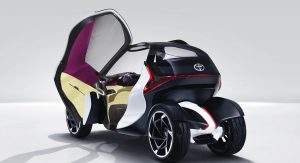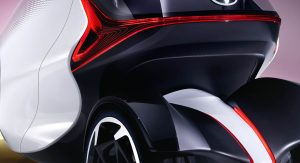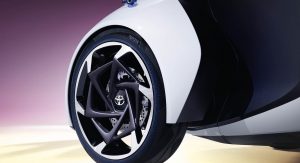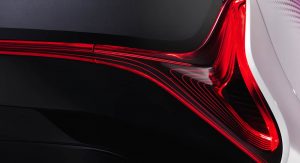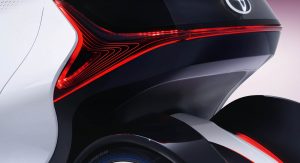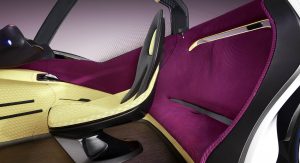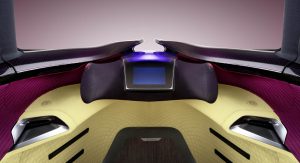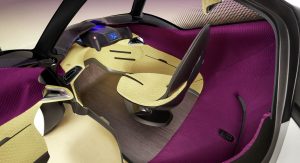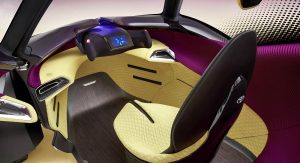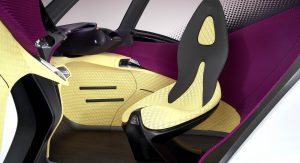Toyota consistently ranks among the biggest automakers in the world. But it won’t stay there if it doesn’t keep an eye on the future of mobility. Hence design studies like the i-TRIL Concept.
Part of the industrial giant’s lineup for the 2017 Geneva Motor Show, the i-TRIL concept adopts a rather unusual setup. Its wheel arrangement is similar to that of a 2+1 trike, but with two wheels spaced closely together at the back and farther apart up front, and a 1+2 seating layout inside.
Similar to the i-Road concept – or any motorcycle for that matter – the i-TRIL is designed to lean into corners (at up to ten degrees) instead of remaining upright like a car, with an articulated suspension to keep all four wheels on the ground.
Weighing in at a spritely 600 kilograms (1,323 pounds) and stretching less than ten feet long, the i-TRIL has a comparable turning circle to the Toyota iQ, making it highly maneuverable in the urban environments in which it’s designed to operate.
Power comes from an electric motor of unspecified capacity but a range quoted at over 185 miles on a full charge. The vehicle is envisioned to operate autonomously, but when the driver wants (or needs) to take over, there’s no pedals, instrument panel, or even a traditional steering wheel for that matter – just a joystick-like controller and a head-up display. But even in autonomous mode, it alerts the occupants of an impending corner into which it’s about to lean.
The bodywork, such as it is, blurs the lines between metal and glass by gradually fading from one to the other. And access is granted via butterfly doors that even take a chunk of the floor with it to facilitate ingress and egress.
It’s a novel take on urban transportation, to be sure. And even if it doesn’t see mass production, it’s interesting to see what one of the biggest players in the game has in mind for the future. Then again, if Toyota can get the i-Road approved for the road, who’s to say the i-TRIL couldn’t, too?



